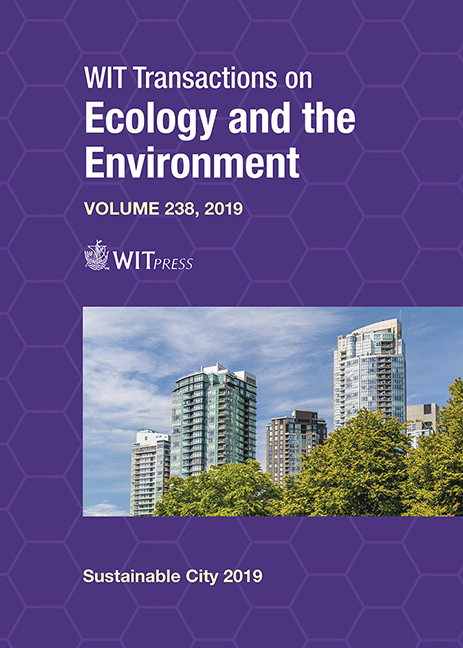URBAN ECOLOGICAL FOOTPRINT ANALYSIS AS AN EVALUATION TOOL FOR SUSTAINABILITY: ANALYSIS OF THE BUILT-UP LAND FOOTPRINT OF ALEXANDRIA CITY, EGYPT
Price
Free (open access)
Transaction
Volume
238
Pages
11
Page Range
271 - 281
Published
2019
Paper DOI
10.2495/SC190241
Copyright
WIT Press
Author(s)
RANA ASHRAF KANDIL, ALAA SARHAN, RANIA ELSAYED ABDELGALIL
Abstract
With fast urbanization, numerous cities are confronting different environmental issues, leading to local environmental degradation. It is basic to make a scientific assessment so that convenient solutions can be proposed by looking at the local realities. Numerous assessment strategies have been suggested such as emerge analysis, material flow analysis, data development analysis and ecological footprint analysis. Among them, ecological footprint analysis (EFA) has been implemented as a useful analytical and planning tool for assessing urban sustainability in numerous cities. The aim of this research is to use one of the EFA components that is the built-up land footprint (EFBuilt-up land) to evaluate the sustainability in Alexandria, Egypt, in terms of settlements. In order to assess a sophisticated picture of EFBuilt-up land of Alexandria, the researchers will collect all relevant data for the years 2005 to 2017 and calculate the EFBuilt-up land and BCBuilt-up land during this time-series (2005–2017). The research concludes that the Alexandria’s EFBuilt-up land exceeds its bio-capacity (BCBuilt-up land), resulting in an ecological deficit (EFD). Consequently, the element of built-up land in Alexandria is considered an unsustainable system. Finally, the researcher will propose guidelines to respond to the findings so that the city can shift towards a sustainable evolution direction for Alexandria’s vision of 2050.
Keywords
built-up land footprint, ecological footprint analysis, urban sustainability, sustainable development





